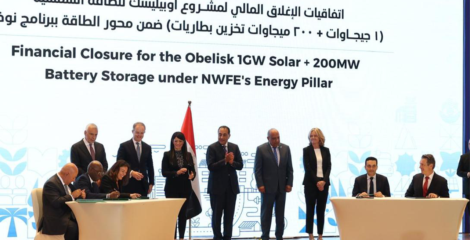Revterra’s Triumph: Revterra, a Houston-based battery technology innovator, secures a $1 million piloting opportunity from ADNOC after winning a global competition with 650 applicants from 50 countries.
Strategic Collaboration: ADNOC Executive Director for Low Carbon Solutions and International Growth, Musabbeh Al Kaabi, looks forward to collaborating with Revterra to introduce cutting-edge solutions that enhance efficiencies and contribute to ongoing decarbonization efforts
Revolutionizing Energy Storage: Revterra’s Chief Financial Officer, Patrick Flam, underscores the environmentally friendly nature of their batteries, highlighting the use of recycled steel instead of traditional metals like lithium, nickel, or cobalt.
In the aftermath of a global competition that drew 650 applicants from 50 countries, ADNOC has awarded a $1 million piloting opportunity to Revterra, a Houston-based innovator in battery technology utilizing recycled steel. Revterra emerged as the chosen recipient from a pool of 10 finalists following an event in Dubai, according to an ADNOC press release.
Musabbeh Al Kaabi, ADNOC Executive Director for Low Carbon Solutions and International Growth, expressed anticipation in collaborating with Revterra to introduce cutting-edge solutions that enhance efficiencies and contribute to ongoing decarbonization efforts. As part of the arrangement, Revterra will have access to facilities and expertise at the ADNOC Research and Innovation Centre in Abu Dhabi.
Patrick Flam, Chief Financial Officer of Revterra, highlighted the environmentally friendly nature of their batteries, emphasizing their unique reliance on recycled steel rather than traditional metals like lithium, nickel, or cobalt. He welcomed the opportunity to develop and deploy this solution across ADNOC’s operations, underscoring the minimal environmental footprint achieved through rotational energy storage technology.
The collaboration between ADNOC, AWS, bp, Hub71, and the Net Zero Technology Centre resulted from the ADNOC Decarbonisation Technology Challenge. This initiative sought emerging climate tech innovations, covering areas such as digital applications, carbon capture utilization and storage (CCUS), new energies, oil and gas emissions reduction, advanced materials for decarbonization, and nature-based solutions.
ADNOC’s overarching goal is to reduce the carbon intensity of its operations by 25 percent by 2030 and achieve net-zero emissions by 2045. To facilitate this, the company has initially allocated $15 billion towards low-carbon solutions, new energies, and climate technologies.
If you see something out of place or would like to contribute to this story, check out our Ethics and Policy section.














